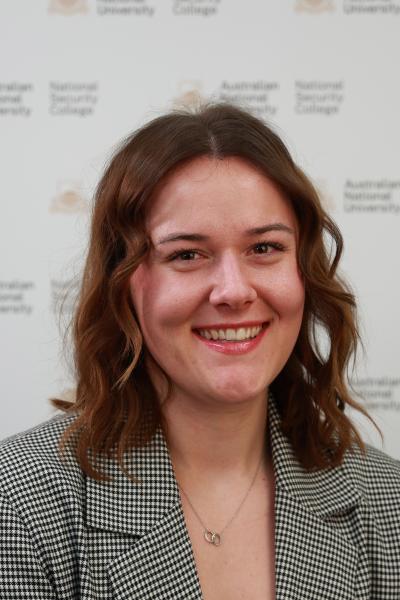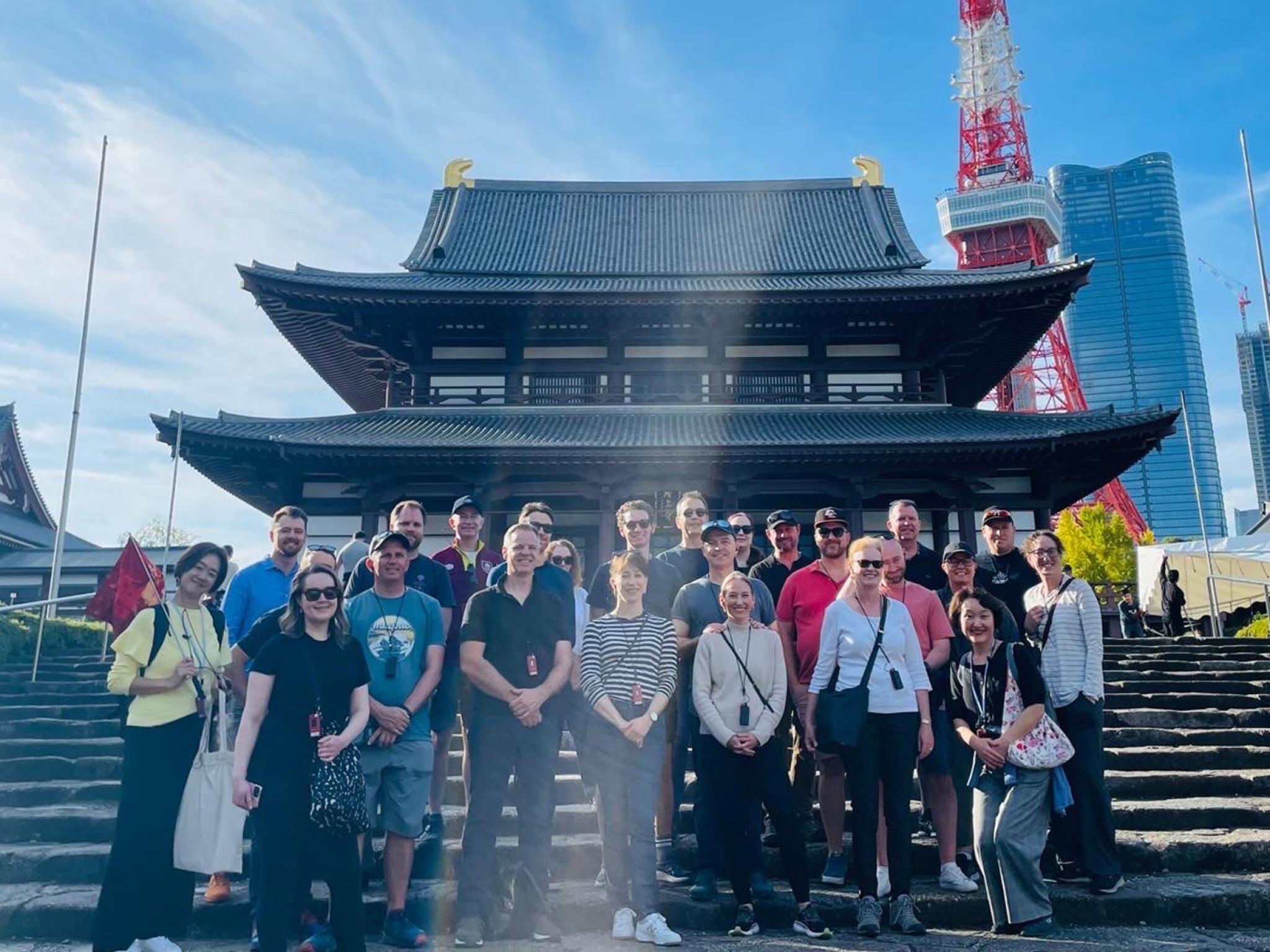The College’s unique nature as a Commonwealth-ANU partnership allows us to bring together academic experts and senior policy practitioners from Australia and across the world.
Developed and facilitated by experienced government officials, academics and practitioners.
Programs prioritise candid dialogue to develop ideas and share constructive experiences.
Multidisciplinary and inter-agency cohorts prioritise whole-of-government networking.
Executive programs
Immersive programs designed for specific cohorts of national security professionals based on experience and seniority.
- Length: 1–4 weeks
Professional programs
Intensive programs providing participants with access to cutting-edge research and in-depth understanding of emerging national security challenges.
- Length: 1–3 days
Bespoke programs
Tailor-made programs designed to build capacity, facilitate dialogue and develop shared analytical problem-solving.



Meet the team

Jess Chmielewski
What is a PAC agency? Is my agency on this list?
PAC stands for ‘Participating Agency Contract’. Nineteen PAC agencies provide funding to NSC in return for guaranteed places on our SES, EL2 and EL1 Executive development (ED) programs. PAC agencies also receive discounted rates on our Professional development (PD) courses.
Current PAC members are:
- Attorney-General’s Department
- Australian Criminal Intelligence Commission
- Australian Electoral Commission
- Australian Federal Police
- Australian Security Intelligence Organisation
- Australian Signals Directorate
- Department of Agriculture, Fisheries and Forestry
- Department of Climate Change, Energy, the Environment and Water
- Department of Defence (incl. ADF)
- Department of Finance
- Department of Foreign Affairs and Trade
- Department of Health
- Department of Home Affairs
- Department of Industry, Science and Resources
- Department of Infrastructure, Transport, Regional Development, Communications & the Arts
- Department of Prime Minister and Cabinet
- Office of Inspector-General of Intelligence and Security
- Office of National Intelligence
- The Treasury
Can members of non-PAC agencies attend NSC courses?
Yes, NSC welcomes participants from non-PAC Commonwealth agencies on our PD and ED courses – subject to availability.
Can PAC agencies purchase places over and above PAC allocation?
The NSC accepts nominations for ‘fee-for-service’ places on our programs on a ‘first come first served’ basis. A wait list will be in place once a program is full. The NSC aims to offer wait list places to participants from different agencies to ensure best mix of participants on each course.
What is the nomination process?
NSC accepts nominations from L&D teams and individuals. Nominations will be accepted until two business days prior to the program, unless a clearance is required (see below) and subject to availability. If a nominee is unavailable, a substitute nomination who meets the program criteria can attend at no additional charge, however we cannot easily transfer nominations to another program. Payment or invoice authorisation should occur at the time of nomination.
Do I need a clearance to attend NSC courses?
Security clearances (NV1 or higher) are needed for some courses. This information is included in our course descriptors and nominations forms. For course that require security clearances, nominations will close at least working days before the start of the program, to provide NSC time to confirm clearance status and arrange extra briefings, if needed).
The end of the financial year is coming up. Can I pre-purchase places for the next financial year?
Yes, NSC can accept payment for courses in advance of delivery – if this is in line with agency’s procurement processes. Vouchers purchased prior to 30 June are to be used for courses in the same calendar year. Agencies can specify the course/s of interest or purchase vouchers for a set number of training days. Agencies interested in pre-purchasing course places are encouraged to speak to NSC in the first instance.
Where is the NSC? How can I get there?
The NSC is located within the Australian National University’s Acton campus.
Our official address is:
Level 3, Building 132a
Crawford School of Public Policy
1 Lennox Crossing, Acton ACT 2601
There is limited paid parking close to our building, but it is at a ‘first come, first served’ basis. Participants are encouraged to use public transport or other forms of transport.
Can I attend a NSC program virtually/online?
NSC’s executive and professional development programs are rarely offered virtually – this is due, in part, to the subject matter we cover but also because to provide participants the best opportunity to build their networks and “communities of practice”. NSCs academic program is offered virtually – and students interested in our Masters or Graduate Certificate programs should explore online offerings separately. NSC will create and deliver virtual bespoke programs if that is preferred.
Can I see the schedule/speaker line up before committing to attend?
As we are sure you can appreciate, programs like ours involve significant development and planning; we redesign each time we offer a course—to ensure it reflects latest research and thinking—and speakers regularly change. We provide as much information about schedule and content as possible, but we may not be in a position to release final schedules until closer to the program commencement date – often after registrations have closed.
How many places can I reserve for my team/agency on a program?
Typically, we have 20 – 30 participants on each program. Ideally this will include participants from different agencies, enhancing the learning experience for all. For this reason, NSC does not normally have more than 10 participants from any one agency on the same course. That said, we can be flexible. Agencies that think they may have large numbers for specific courses are encouraged to talk to us in the first instance, as we may be able to design and deliver a bespoke course.
Can the NSC design and deliver bespoke programs for my department?
Yes, we can design and deliver bespoke programs, tailored to your department’s requirements. These programs require significant lead time, so please give us as much notice as possible (ideally 2-3 months minimum). Please contact our team to discuss further.
I’m do not work in the Australian Federal Government. Can I still attend NSC’s programs?
Yes absolutely, provided you meet program requirements e.g. security clearance requirements. We regularly welcome participants from state and local governments, private companies and academia, as well as students, right through to seasoned practitioners.
How do I register for a NSC program?
Please register for our programs using the nomination form on the right, and in accordance with your employer’s requirements.
Please note:
- NSC engages closely with Learning and Development / HR teams in many agencies; we may refer individual nominations back to the L&D team in your agency, particularly if you are enquiring about places on our Executive Development programs.
- Submitting a nomination form does not guarantee a place in a program. We will get back to you as soon as possible to confirm whether you have secured a place on our course or if you have been placed on a wait list for this or future courses. Please wait to hear back from us to confirm your place.
How do I pay for my attendance?
NSC will either send a credit card link or raise an invoice once your nomination has been confirmed. You can choose how you would like to pay when submitting your nomination. For payments via credit card, a receipt will be immediately issued to the email that you use to register for the program.
Can I cancel once I have nominated?
NSC recognises that participants may not always been able to attend a course even after paying for it. For most courses, we welcome substitutions, and suggest you contact us via epd.nsc@anu.edu.au or (02) 6125 2233 as soon as you know you may not be able to attend. The nomination form (download via link at right of screen) includes more information on our cancellation policy.
What is the difference between Executive Development and Professional Development?
Executive Development programs are designed to enhance participants understanding of the broader national security environment, including policy challenges and opportunities. These programs cover a wide range of subjects, and are designed to ensure participants build not only their understanding of national security, but also their networks. These programs vary in length, according to the experience and level of participants, most of whom are from PAC agencies:
- APS 5/6 – five days
- EL1 – ten days
- EL2 – fifteen days
- SES – twenty days
Professional Development (PD) programs are subject-specific short courses where we focus in more depth on a particular topic. Examples include on AUKUS, China, Climate, Legal Literacy or Artificial Intelligence. Most PD programs are only one or two days and are offered once or twice each calendar year.
I’m a substantive APS6. Can I apply for the EL1 program?
Yes you can, but your nomination must be supported by your supervisor or manager. This would normally be a memo or email attached to your nomination.
Ideally you will have some experience acting at the higher-level, and be considered ‘high-performing’, or on track for promotion. This same guidance applies for substantive EL1 and EL2 candidates.





















